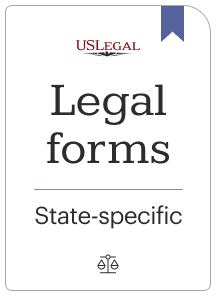

An assignment consists of a transfer of property or some right or interest in property from one person to another. Unless an assignment is qualified in some way, it is generally considered to be a transfer of the transferor's entire interest in the interest or thing assigned. Unless there is a statute that requires that certain language be used in an assignment or that the assignment be in writing, there are really no formal requirements for an assignment. Any words which show the intent to transfer rights under a contract are sufficient to constitute an assignment. The New Jersey Assignment of Real Estate Purchase and Sale Agreement is a legal document that allows a party, known as the assignor, to transfer their rights and obligations under a real estate purchase and sale agreement to another party, known as the assignee. This assignment effectively replaces the assignor's role in the original agreement with the assignee, who takes over the responsibilities and benefits of purchasing the property. In New Jersey, there are two main types of Assignment of Real Estate Purchase and Sale Agreements: 1. Assignment with Consent: This type of assignment requires the consent of all parties involved in the original purchase and sale agreement. The assignor must obtain written permission from the seller, buyer, and any other relevant parties to transfer their rights to the assignee. This agreement typically outlines the terms of the assignment, including any financial considerations or additional conditions. 2. Assignment without Consent: In some cases, the original purchase and sale agreement may allow for assignments without the explicit consent of all parties involved. However, there may be specific conditions or limitations outlined in the agreement that need to be adhered to. The assignor must carefully review the original agreement to ensure that an assignment without consent is allowed and follow any procedures or requirements stated therein. It is important to note that both the assignor and assignee should seek legal counsel to ensure compliance with New Jersey real estate laws and to protect their interests when entering into an Assignment of Real Estate Purchase and Sale Agreement. The document should be drafted accurately and include relevant details such as the property address, original agreement terms, consideration (if any), and the effective date of the assignment. Any additional provisions or conditions that are unique to the assignment should also be clearly outlined. In summary, the New Jersey Assignment of Real Estate Purchase and Sale Agreement is a legal instrument that allows for the transfer of rights and obligations of a real estate purchase from the assignor to the assignee. It is crucial for both parties to understand the different types of assignments available, whether with or without consent, and to consult with legal professionals to ensure a smooth and legally sound transaction.
The New Jersey Assignment of Real Estate Purchase and Sale Agreement is a legal document that allows a party, known as the assignor, to transfer their rights and obligations under a real estate purchase and sale agreement to another party, known as the assignee. This assignment effectively replaces the assignor's role in the original agreement with the assignee, who takes over the responsibilities and benefits of purchasing the property. In New Jersey, there are two main types of Assignment of Real Estate Purchase and Sale Agreements: 1. Assignment with Consent: This type of assignment requires the consent of all parties involved in the original purchase and sale agreement. The assignor must obtain written permission from the seller, buyer, and any other relevant parties to transfer their rights to the assignee. This agreement typically outlines the terms of the assignment, including any financial considerations or additional conditions. 2. Assignment without Consent: In some cases, the original purchase and sale agreement may allow for assignments without the explicit consent of all parties involved. However, there may be specific conditions or limitations outlined in the agreement that need to be adhered to. The assignor must carefully review the original agreement to ensure that an assignment without consent is allowed and follow any procedures or requirements stated therein. It is important to note that both the assignor and assignee should seek legal counsel to ensure compliance with New Jersey real estate laws and to protect their interests when entering into an Assignment of Real Estate Purchase and Sale Agreement. The document should be drafted accurately and include relevant details such as the property address, original agreement terms, consideration (if any), and the effective date of the assignment. Any additional provisions or conditions that are unique to the assignment should also be clearly outlined. In summary, the New Jersey Assignment of Real Estate Purchase and Sale Agreement is a legal instrument that allows for the transfer of rights and obligations of a real estate purchase from the assignor to the assignee. It is crucial for both parties to understand the different types of assignments available, whether with or without consent, and to consult with legal professionals to ensure a smooth and legally sound transaction.